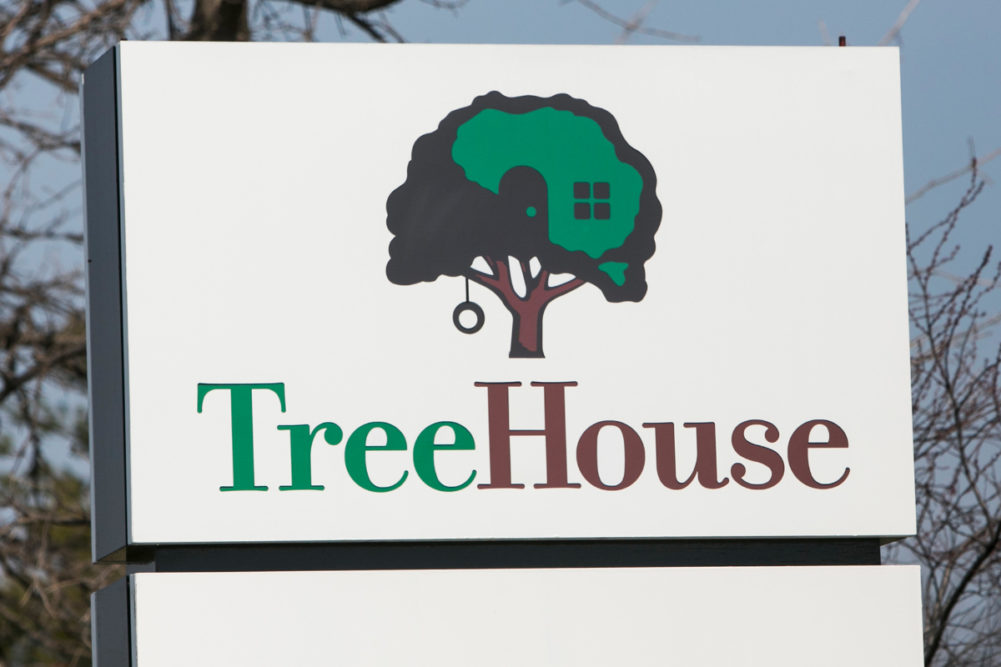OAK BROOK, ILL. – Private label food and beverage manufacturer TreeHouse Foods, Inc. faced numerous challenges during the second quarter of fiscal 2020, most notably the starting and stopping of manufacturing plants due to the coronavirus (COVID-19). The intermittent shutdowns lowered service rates and delivered results slightly below company guidance.
“In a number of instances, we made very conscious decisions to temporarily close certain locations so that we could take additional sanitation measures and keep our people safe,” said Steven T. Oakland, president and chief executive officer, during an Aug. 6 conference call with analysts. “This translated into underserved demand in certain categories in the second quarter.”
Categories impacted by the production disruption were dry dinners, creamers and pretzels.
Private label also lost share during the quarter as branded manufacturers were able to adjust shelf sets with higher demand stock-keeping units (SKUs) faster than private label companies.
“This is a very complex exercise for private label, given the variety of formulations and packaging,” Mr. Oakland said. “While this limited assortment resulted in fewer choices on the shelves for consumers, it enables us to run our plants more efficiently and provide retailers with more tenants.
“As demand has stabilized, we have now restored over 80% of the SKUs we limited, most of which will be shipping by the end of August, and we think our current plant protocols allow us to improve our customer service levels going forward.”
For the quarter ended June 30, the company incurred a loss of $1.5 million, which was an improvement over the same period of the prior year when the company lost $172 million.
Sales ticked up less than 2% to $1.04 billion.
Sales for TreeHouse’s Meal Preparation business unit rose by $10 million to $668 million when compared with the second quarter of fiscal 2019. Favorable volume/mix from increased retail demand due to the pandemic drove sales, according to the company.
The Snacking & Beverage unit saw sales rise $6 million, to $374 million, which compared with the previous year.
Management raised TreeHouse’s earnings per share guidance to a range of $2.55 to $2.75. Fiscal 2020 sales are expected to be in a range of $4.1 billion to $4.4 billion.
“We considered the carryover loss business, new commercialization, corporate-related demand and the negative impact of food away from home,” said William J. Kelley, chief financial officer. “This situation continues to be dynamic. But based on what we see today, we are raising our expectations for revenue in the back half to be flat to up 2% on a reported basis and up 2% to 4% on an organic basis.”
Mr. Oakland said recessions bode well for private label, but that TreeHouse has yet to see an effect from the most recent economic downturn.
“At this point, we believe that the consumer has yet to feel the pinch,” he said. “In light of the government's unprecedented stimulus, to date, we have not seen this recession translate into changes in consumer habits, including how we shop at the grocery store.
“And whether you want to believe in a U- or a V- or a W-shaped recovery, it's hard to forecast anything, but a recessionary tailwind for private label. I would argue that it's only a matter of time before we see the consequences of these trends.”





